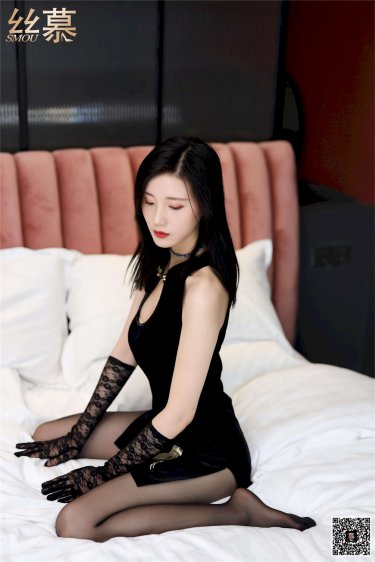剧情介绍
陶氏的眼睛微微一转:想要(🤫)断绝关系(xì )也行啊,怎么也得出一些钱(🉑)吧!
直到霍老爷子从屋子里走出来(lái ),喊了她一声:浅浅(🌯)。
Set under the lush canopies of Uganda's Ngogo Forest, scientists and field trackers have lived alongside this tribe for the last 25 years, watching as...
她能感觉到,只是轻微(🚝)动(🚧)一(🔲)下,她膝盖(gài )都痛的厉害,但她没有放(🎸)弃。
(Claude Berri, who usually participates in films by directing them, here returns to the screen as an over-the-hill lothario, much given to quoting Shakespeare, who occasionally goes around naked under his raincoat and exposes himself to strangers, who are usually not interested in his primitive display of genitalia. It also appears that he is unable to sexually satisfy his much younger lover, and he suspects her of having another boyfriend. He earns his living tutoring students (mostly young girls) in English literature. When, in his frustration, he gropes one of the girls in her home during a tutoring session, she protests, her father (who is at home) beats him up, and he is sentenced to a jail term. There, he is teamed up with a slightly loopy murderer. When he gets out of jail, he finds his girlfriend has left for good, and ends his life.)
张采萱起先完全没想过谁的(de )忙,之所以如此,不(㊙)过是因为(wéi )这样自己方便。避免一些事情,还(📻)有就是,大(🙇)丫从小在村里长(zhǎng )大,干惯了农活,张采萱要是有什么不方便的(🔢)都可以让她去做。
原名方丽英。建国前从事歌舞、话剧演出,1950年参加(🛩)合作滑稽剧团(tuán ),在《活菩萨》中饰演潘丽蓉一角,成为滑(huá )稽界著名"花旦"之一(🌟)。1952年后先(xiān )后参加大众滑稽剧团、上(shàng )海市青艺滑稽剧团。在《三毛学生(shēng )意》中饰(shì )演主角小英。此剧赴京演出时,受到周恩(ēn )来总理的接见,1958年由天马电影制片厂(🕓)摄成电影。应邀于1961年(nián )参加喜剧影片(🎙)《大李老李和小李》的拍摄。她主演的《荷珠(🧡)配》,得到周扬(yáng )、阳翰(hàn )笙等的好评。70年代后,多扮演"老旦"或"彩旦"角色,如《婚姻大事》中的阿红娘,《出租的新娘》...Brazilian-born Tizuka Yamasaki, a granddaughter of Japanese immigrants, has lived one of Brazil's most complicated identity crossroads. As a result, Yamasaki's films frequently deal with intersection of gender, race, nationality and ethnicity in Brazilian culture, pushing the question of what it means to be Brazilian.
见这招不管用,顾潇潇干脆懒得(dé )装,泄气(qì )的冲蒋少勋说:既然您老(lǎo )都不打(🐫)算开除我了,那劳烦移动尊臀,让我过去一下。
千星不由得迟疑了一(yī )下,随后(🌖),便眼睁(zhēng )睁看着那辆车从自己眼前驶离了。
环游世界八十天播放地址
网友评论
1900回复:烈焰焚情烈焰(yàn )焚情,让熊(xióng )熊烈火燃烧(🙃)我的过去。。我怎(🎰)么又想起歌词
小纠结吖:镜头一般 配乐却出奇(😳)的好 很专业 剧(🥩)情不(bú )错 我比较关注的是行为主义的实际表(biǎo )现还有性在婚姻中的影响 男女之间(📳)的认同感这些(xiē )问题 希望能挖掘出一些东西(xī ) 恩 演员演技都很到位 法式(😃)的小(✡)浪漫 小幽默和细腻的情感处理都很好 相比大陆演(yǎn )员 更多的是文化(huà )上的(de )差异
Cimmy:呃……剧情简介(🚨)里(🚔)的高云地利就(jiù )是Coventry市啦(lā )……这翻译绝了……
北岸:狐狸送葡萄 你真是好狐狸啊 野猪要做家猪
敌特:这爱的太荒谬了,太一厢(🍮)情愿了,太悲催(cuī )了,你以为是现(👅)实,其实(🛃)只是你的一场梦,或许,爱,本就是一场(chǎng )梦。PS:看到结尾才发现好像以前看过。
邱浮:恶有恶报啊
Ce♥:是一(👜)部不需(xū )要字幕就能看懂的(⏸)简单(dān )而饱含温暖的电影。
大H:风云还是很经典的!
喜欢看【环游世界八十天】的人也喜欢
大陆剧• 热播榜
- 1双语字幕海上生明月
- 2高清Im Alleingang - Die Stunde der Krähen
- 3在线播放我会回来过圣诞
- 4在线播放至尊无上
- 5高清沃兰德探长系列:复仇 - 电影
- 6双语字幕熊山冒险
- 7在线观看冷血条子 - 电影
- 8正片An All American Fairytale
- 9高清救世主
- 10高清A Study in Gravity
【本月 • 收藏榜】
- 1高清机器魔偶 - 电影
- 21080PCentral Park
- 3HD全面揭发:印度板球造假丑闻
- 4中文字幕奇侠
- 5国语中字西点军校的故事
- 6第9集小棉袄 - 电影
- 71080P妙胆雄风
- 8国语中字靠黑翻红
- 9高清女高中生结婚记 / 逃学新娘
- 10第9集兄弟会 - 电影











